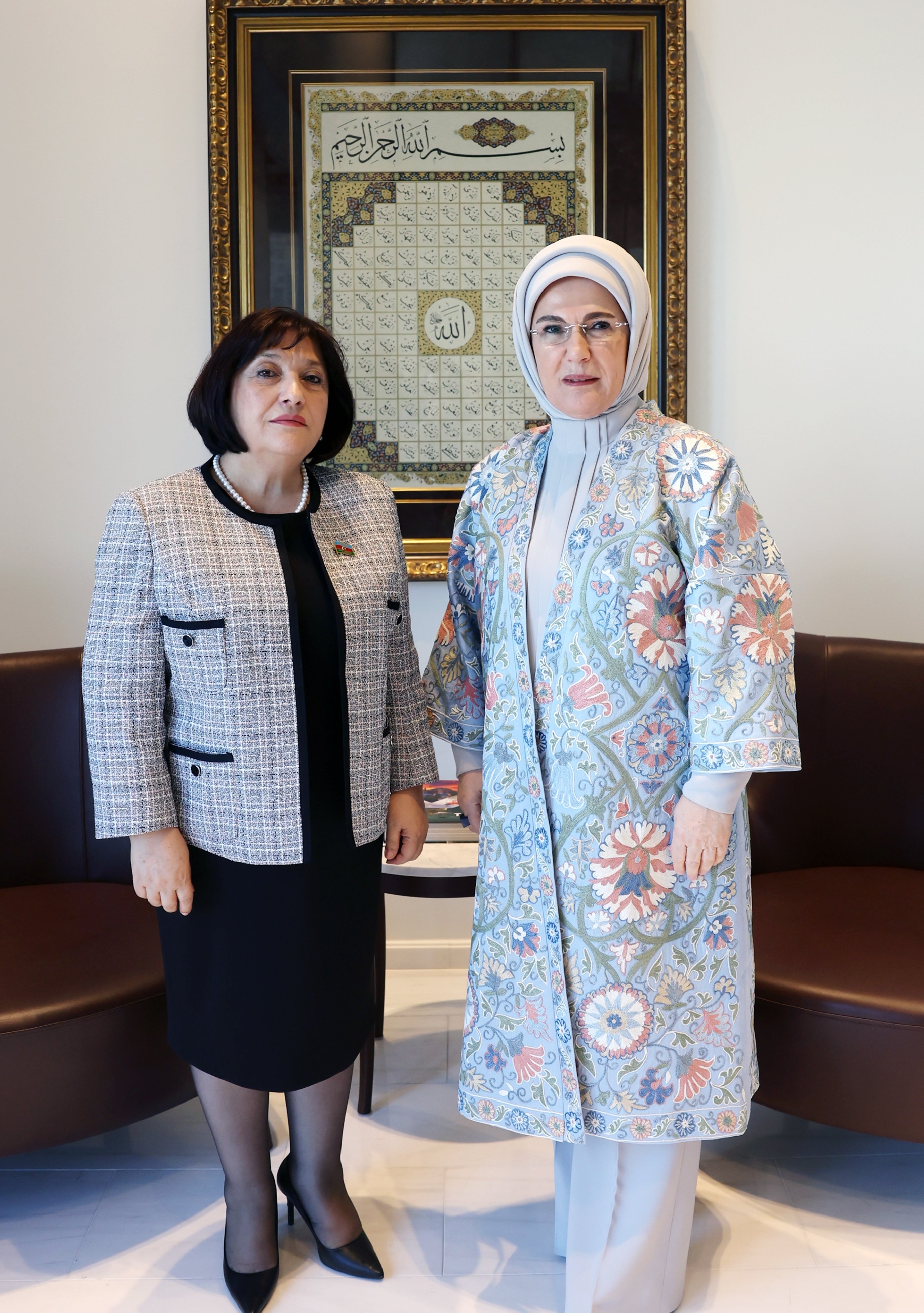© Turkuvaz Haberleşme ve Yayıncılık 2026
A special invitation was sent by U.N. Habitat Executive Director Maimunah Mohd Sharif to Turkiye's first lady Emine Erdoğan to attend the March 30 International Zero Waste Day events, which will be held for the first time. The first lady along with Foreign Minister Mevlüt Çavuşoğlu arrived in New York to attend the special session at the United Nations.
Sharing a message on her Twitter account regarding the meeting, Erdoğan said, "We shared our experiences of Zero Waste with the world and we agreed that environmental problems are the responsibility of all countries of the world and we need to join our hands to fight against the climate crisis."
This year, Türkiye is marking its first International Zero Waste Day, which was inspired by the Zero Waste Project launched under the auspices of first lady Emine Erdoğan in 2017 to highlight the importance of eliminating waste in fighting the climate crisis in Türkiye. The U.N. General Assembly adopted a resolution during its 77th session on Dec. 30, 2022, to proclaim March 30 as International Zero Waste Day, to be observed annually. Türkiye, with 105 other countries, put forward the resolution.

While the whole world will celebrate this day to learn the importance of recycling, reusing and reducing waste, Turkish provinces are coming up with different projects and ideas to mark this day by spreading awareness in the youth under the framework of the Zero Waste Project.
In Ondokuz Mayıs University Samsun, faculty member professor Yüksel Ardalı drew attention to the environmental problems caused by waste and, if applied correctly, the zero waste philosophy will eliminate all harmful discharges to the soil, water and air that pose a great threat to the planet health.
Explaining that the zero waste philosophy is primarily focused on reducing waste and re-increasing products, then recycling and composting the rest, Ardalı said, "About 931 million tons of food is wasted every year and it is expected that up to 37 million tons of plastic waste will be mixed into the oceans until 2040. If 'food loss and waste' were a country, the greenhouse would be the third largest source of gas emissions."
Emphasizing that the separation of waste at the source will play an important role in reducing the amount of waste, Ardalı said, "Organic wastes such as vegetables and fruits constitute 55% of the wastes that may arise from our homes and workplaces, plastic wastes 6%, paper-cardboard 8%, glass 3%, metal 1%, and the rest. When we look at these rates, we see that a very large part of our waste is recyclable."
Stating that there are five interconnected basic principles that must be applied simultaneously in order for a city to become a zero waste city, Ardalı said, "Behavior change and sustainable consumption, extended producer and consumer responsibility, 100% recycling of municipal solid waste, zero storage and zero incineration, and 100% resource recovery from waste are required."
Ardalı stated that the International Zero Waste Day aims to promote sustainable consumption and production patterns, support social change toward circularity, and raise awareness about the contribution of zero waste initiatives to the 2030 Sustainable Development Agenda.
A Zero Waste Management System has been implemented in 164,000 buildings and campuses throughout Türkiye since June 2017. According to the information compiled by Anadolu Agency (AA) from the data of the Ministry of Environment, Urbanization and Climate Change, approximately 2.24 billion tons of municipal waste was generated in the world in 2020. Based on information from the World Bank, the average amount of waste generated per person per day worldwide is 0.74 kilograms. However, this amount can vary from 0.11 to 4.54 kilograms. If this trend continues, it is projected that by 2050, the amount of waste produced annually will reach 3.88 billion tons.
Worldwide, as of 2022, an average of 82% of municipal waste is collected and 55% is sent to waste treatment facilities. Some 33% of the wastes, which cause 2% of greenhouse gas emissions on a global basis, are still irregularly stored.
In addition to the Zero Waste Project, Provincial Zero Waste Management System Plans were prepared by 81 provinces in Türkiye in order to ensure the sustainability and efficiency of the Zero Waste Management System, which will be implemented at the provincial level by local administrations and buildings and campuses, on a local and national scale, and with strategic integrity.
Since the implementation of the Zero Waste Management System, approximately 20.4 million tons of paper-cardboard, 5.4 million tons of plastic, 2.3 million tons of glass, 0.5 million tons of metal and 5.2 million tons of organic and other recyclable wastes were recycled. According to ministry's calculations, in general, the Zero Waste Project contributed to the Turkish economy with TL 62.2 billion ($3.24 billion) in saved resources.
